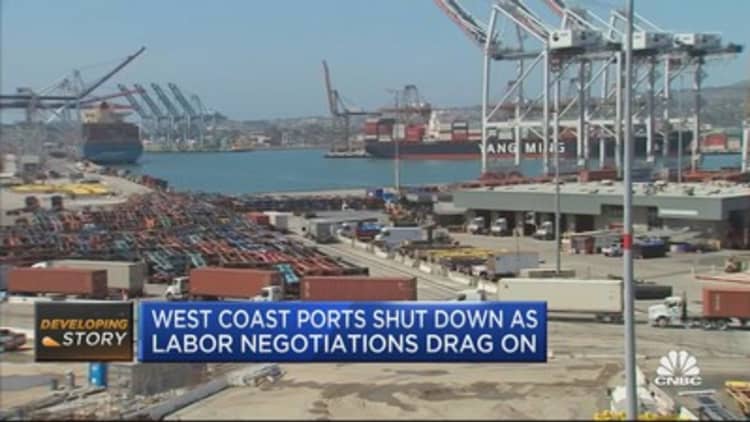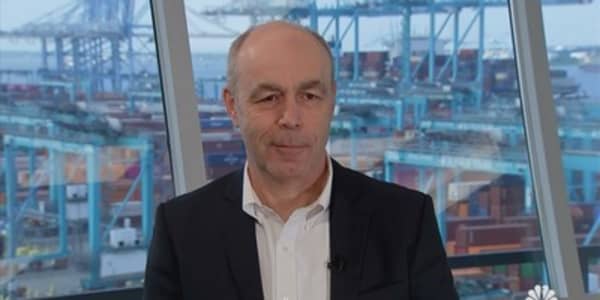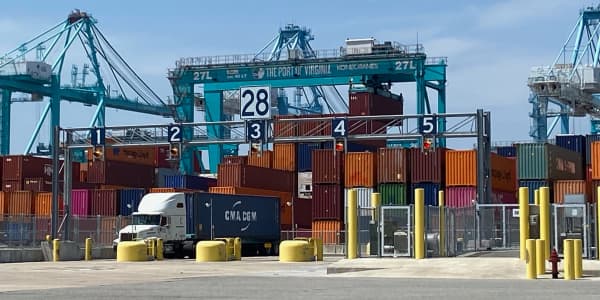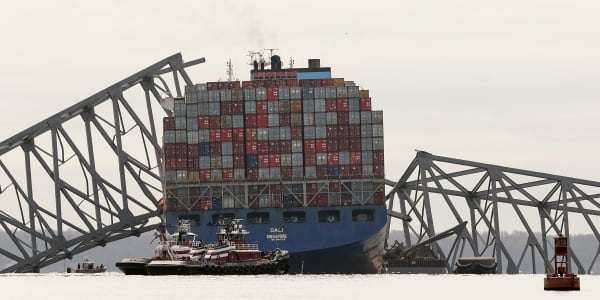In a landslide vote, over 99% of ILWU Canada union workers critical for West Coast port operations, including in Vancouver and Prince Rupert, voted in favor of supporting a strike. If a strike occurs, a 72-hour strike notice would be filed before June 21. The earliest possible strike date would be June 24.
The vote, which took place on June 9-June 10, occurred during a 21-day cooling-off period between the British Maritime Employers Association and ILWU Canada. Negotiations with the Federal Maritime Conciliation Service started on March 28. Two mediators appointed by the Canadian government were overseeing the discussions that ran through the end of May.
The biggest port to be affected is the Port of Vancouver, the largest port in Canada. About 90% of the cargo that moves through the Port of Vancouver is Canadian trade, according to a statement from a spokeswoman for the Vancouver Fraser Port Authority. But there are potential impacts for U.S. trade. Approximately 15% of container trade moving through the Port of Vancouver is destined to or from the U.S., and approximately 2% of U.S. international laden imports arriving at West Coast ports each year move through the Port of Vancouver, according to the port authority.
Approximately two-thirds of containerized import volumes coming into the Port of Prince Rupert are destined for the U.S. market by rail, according to Prince Rupert Port Authority's vice president of trade development & real estate Brian Friesen.
It is estimated that Canadian West Coast ports handle almost $225 billion worth of cargo a year, with items transported by rail including many consumer products, from apparel to electronics and home goods.
Three Class 1 railways operate at these ports, CN, Canadian Pacific, and BNSF, a subsidiary of Berkshire Hathaway. The rails could not be immediately reached for comment.
The threat of a strike is occurring as labor tensions have escalated at U.S. West Coast ports. Canadian shippers could shift trade to the neighboring Port of Seattle, but the Port of Seattle has been significantly impacted by labor slowdowns and work stoppages which led to its closure on Saturday as the ILWU in the U.S. continues to negotiate with the Pacific Maritime Association for a new contract, with wages and automation proving to be sticking points.
"This is a significant blow to operations on the West Coast," said Paul Brashier, vice president of drayage and intermodal at ITS Logistics. "These ports are vital to Midwest manufacturers and the auto industry, as most transpacific freight enters at these points prior to interlining to rail and going to inland rail ramps in Chicago and other major markets. More significant is that these ports were used as relief valves to avoid ILWU activity."
Supply chain fears are running high from trucking to rails and ocean carriers. Cargo has been held up off ports, container congestion and delays have led to longer service and turnaround times. Further complicating the crisis planning for logistics firms are low water levels at the Panama Canal, which make the option of alternate trade routes to the East Coast ports more difficult.
CNBC has learned that President Biden's Acting Labor Secretary Julie Su, who has deep experience in California's labor market, has been speaking with both the union and port management to help broker a deal to avoid a West Coast port crisis.
"We haven't seen containerships waiting offshore like this since Covid!" said Captain Adil Ashiq, head of North America for MarineTraffic, in a statement provided to CNBC on Monday. "Generally, the anchorage itself would be able to accommodate the recent volumes of cargo/vessels, but now, this is definitely bringing back some memories."






